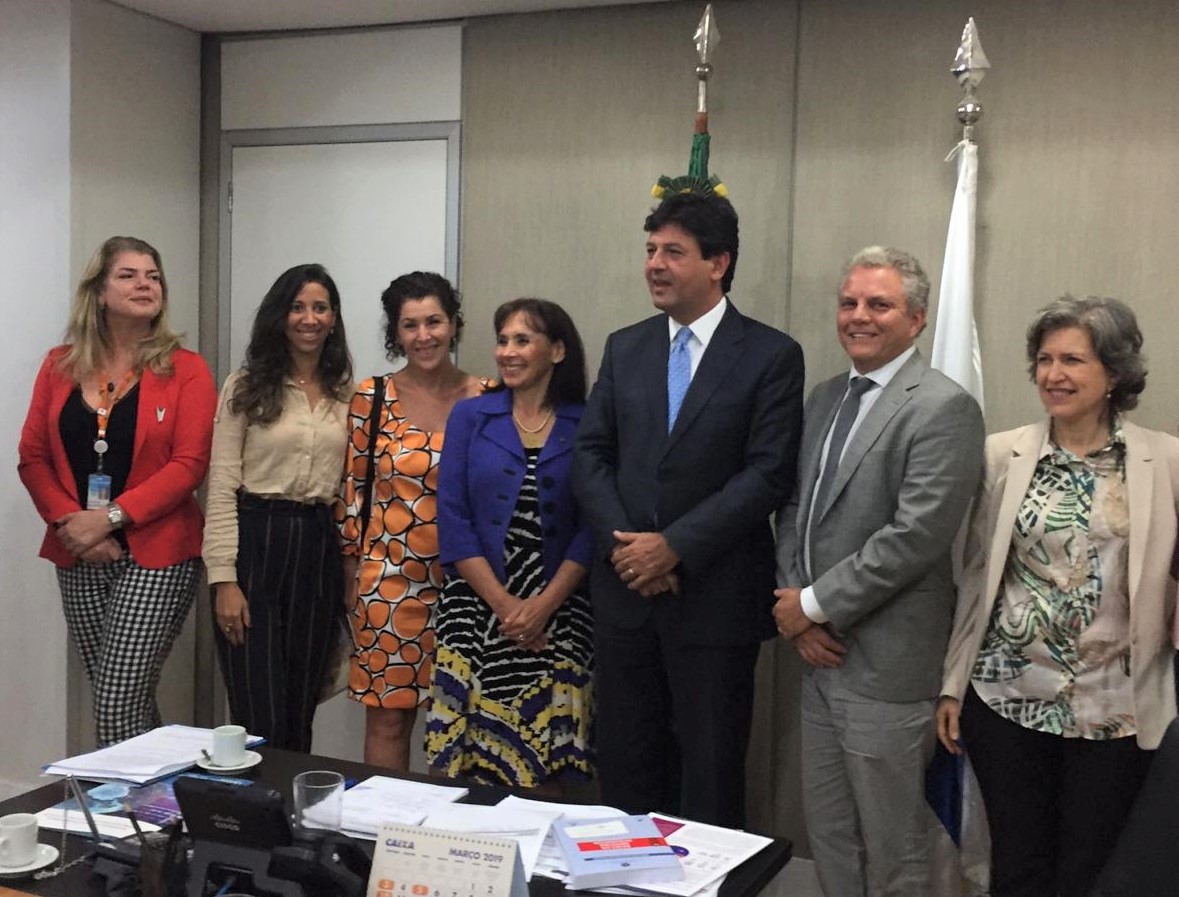Within the framework of the technical cooperation between the Pan American Health Organization through the Latin American and Caribbean Center on Health Sciences Information (BIREME/PAHO/WHO) and the Brazilian Ministry of Health through the Coordenação Nacional de Práticas Integrativas e Complementares em Saúde – National Coordination of Integrative and Complementary Health Practices, several actions and projects are contributing to elevate the comprehension of the population and health professionals on Integrative and Complementary Health Practices (ICHP) in the context of the Sistema Único de Saúde – Unified Health System – SUS of Brazil, thus strengthening self-care practices, health promotion and disease prevention.
These actions also contribute directly to the objectives of the Brazilian Academic Consortium on Integrative Medicine, as well as to the Traditional, Complementary and Integrative Medicine VHL (TCIM Americas VHL).
The Consortium was created through the motivation and need for integration among research groups from Brazilian universities, for the development of synergic work for building qualified knowledge and scientific evidence on the ICHP. Its mission is to contribute for the scientific validation and the sustainability of integrative and complementary approaches in health, through the systematization and production of research and studies that focus on expanding the visibility of scientific knowledge in the field. The Brazilian Consortium brings together over 500 researchers from 50 universities and is linked to the TCIM VHL and to the TCIM Americas Network, which in turn is composed of institutions from 15 countries and has BIREME as Network articulator and facilitator and coordinator of the TCIM Americas VHL.
Currently, the priority of the Consortium is the development of Evidence Maps on the ICHP that are included in the National Policy for Integrative and Complementary Health Practices (PNPIC – Portuguese acronym) of Brazil, in order to support with scientific evidence the integration of ICHP to the SUS, as well as to identify evidence gaps that may help to establish research priorities in the field.
 On February 19, the Brazilian Minister of Health, Dr. Luis Henrique Mandetta, granted a hearing to the Board of the Consortium, represented by its Presiding Director, Dr. Ricardo Ghelman, and accompanied by the PAHO/WHO Representative in Brazil, Dr. Socorro Gross; Verônica Abdala, representing BIREME/PAHO/WHO; Dr. Ana Cristina Pinho Mendes Pereira, Director of the National Cancer Institute; and other partners and collaborators of the Consortium.
On February 19, the Brazilian Minister of Health, Dr. Luis Henrique Mandetta, granted a hearing to the Board of the Consortium, represented by its Presiding Director, Dr. Ricardo Ghelman, and accompanied by the PAHO/WHO Representative in Brazil, Dr. Socorro Gross; Verônica Abdala, representing BIREME/PAHO/WHO; Dr. Ana Cristina Pinho Mendes Pereira, Director of the National Cancer Institute; and other partners and collaborators of the Consortium.
The main result of this hearing was the confirmation of the need to identify, qualify and classify scientific evidence on the ICHP, giving priority to their clinical applications. The Consortium committed itself to implement the Project “Evidence Maps on ICHP”, with the support of the Ministry of Health, of the PAHO/WHO Representation in Brazil and the collaboration of BIREME/PAHO/WHO and other strategic partners of the Consortium, such as the National Observatory on Traditional, Integrative and Complementary Health Practices and Knowledge, coordinated by Fundação Oswaldo Cruz Pernambuco.
In addition, the Consortium has previously established partnerships with other international institutions, such as the National Cancer Institute and the National Center for Complementary and Integrative Health, both connected to the National Institutes of Health of the United States.
About the “Evidence Maps on ICHP” Project
The project intends to achieve a revision of the scientific evidence available for each of the 29 Practices included in the National Policy on Integrative and Complementary Practices (PNPIC) and produce maps of evidence from infometric analysis – by type of revision, by clinical application, by outcomes, among other parameters.
The objective of the project is to give visibility to the available scientific evidence; to identify the gaps in evidence and redundancy (multiple studies on similar questions); to contribute to the establishment of research priorities in the field; and to facilitate the use of available evidence by healthcare managers and professionals.
The methodology applied to the evidence map will be the one promoted by the International Initiative for Impact Evaluation (3ie – http://www.3ieimpact.org), an international initiative that is a leader in financing, production, quality guarantee and rigorous evidence syntheses for supporting decisions.